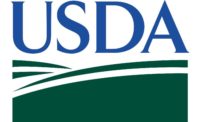USDA’s Animal and Plant Health Inspection Service is using emergency funding to respond to the threats associated with growing outbreaks of New World screwworm. U.S. Secretary of Agriculture Tom Vilsack approved the transfer of $213.3 million from the Commodity Credit Corp. to APHIS to directly support emergency response efforts domestically and internationally to protect livestock industries and producers.
“Increasing our response efforts to ... New World screwworm outbreaks is critical to minimizing their potential impact on our nation’s agriculture and trade,” said USDA Under Secretary for Marketing and Regulatory Programs Jenny Lester Moffitt. “This funding will enable us to swiftly prevent ... populations’ further spread before they become established and harder to eradicate.”
The secretary is authorized to transfer funding from the Commodity Credit Corp. to address emergency outbreaks of animal and plant pests and diseases. APHIS is currently addressing an increasing number of outbreaks of New World screwworm in Central America.
APHIS will use $109.8 million in emergency funds to combat New World screwworm detections in areas of Panama and other areas that are critical to preventing the pest from spreading back into North America. The most recent detection of screwworm in the United States was an outbreak in wild deer in the Florida Keys in 2016, which took over 5 months to eradicate. New World screwworm is a devastating livestock pest that can affect any warm-blooded animal, including humans. USDA and partners eradicated this screwworm from the United States, Mexico and Central America in a multi-decade, multi-billion-dollar effort, creating a barrier in Panama.
While APHIS response efforts are vital to preventing further New World screwworm outbreaks, there are also actions the American public can take to help protect livestock from invasive pests.
For more information on invasive insects or plant diseases, visit HungryPests.com.
Source: USDA's APHIS


Report Abusive Comment